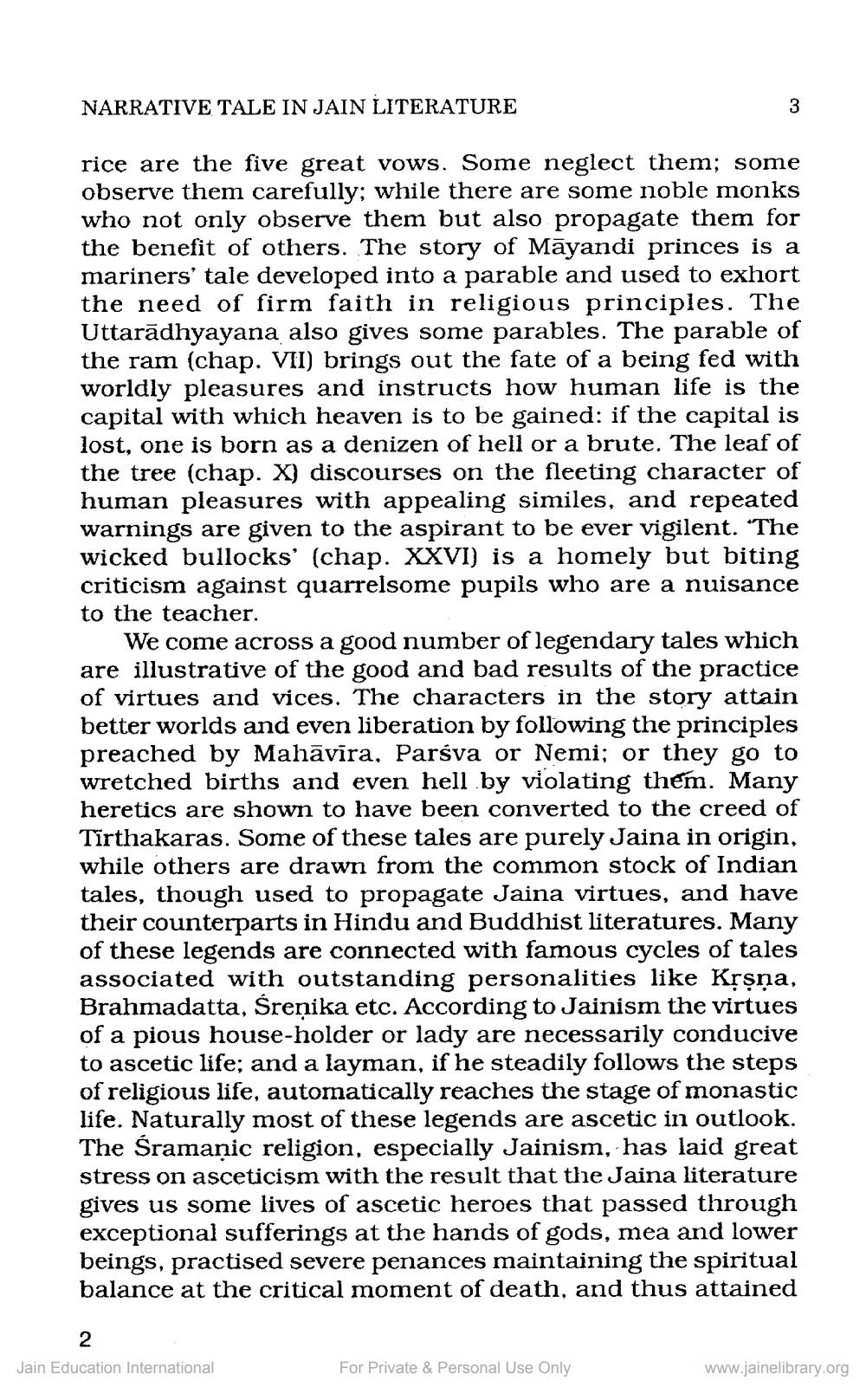________________
NARRATIVE TALE IN JAIN LITERATURE
rice are the five great vows. Some neglect them; some observe them carefully; while there are some noble monks who not only observe them but also propagate them for the benefit of others. The story of Māyandi princes is a mariners' tale developed into a parable and used to exhort the need of firm faith in religious principles. The Uttarādhyayana also gives some parables. The parable of the ram (chap. VII) brings out the fate of a being fed with worldly pleasures and instructs how human life is the capital with which heaven is to be gained: if the capital is lost, one is born as a denizen of hell or a brute. The leaf of the tree (chap. X) discourses on the fleeting character of human pleasures with appealing similes, and repeated warnings are given to the aspirant to be ever vigilent. "The wicked bullocks' (chap. XXVI) is a homely but biting criticism against quarrelsome pupils who are a nuisance to the teacher.
We come across a good number of legendary tales which are illustrative of the good and bad results of the practice of virtues and vices. The characters in the story attain better worlds and even liberation by following the principles preached by Mahāvīra, Parsva or Nemi; or they go to wretched births and even hell by violating them. Many heretics are shown to have been converted to the creed of Tirthakaras. Some of these tales are purely Jaina in origin, while others are drawn from the common stock of Indian tales, though used to propagate Jaina virtues, and have their counterparts in Hindu and Buddhist literatures. Many of these legends are connected with famous cycles of tales associated with outstanding personalities like Krsna, Brahmadatta, Sreņika etc. According to Jainism the virtues of a pious house-holder or lady are necessarily conducive to ascetic life; and a layman, if he steadily follows the steps of religious life, automatically reaches the stage of monastic life. Naturally most of these legends are ascetic in outlook. The Śramanic religion, especially Jainism, has laid great stress on asceticism with the result that the Jaina literature gives us some lives of ascetic heroes that passed through exceptional sufferings at the hands of gods, mea and lower beings, practised severe penances maintaining the spiritual balance at the critical moment of death, and thus attained
Jain Education International
For Private & Personal Use Only
www.jainelibrary.org




